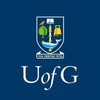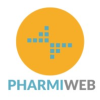Snabbfakta
-
- Glasgow
Ansök senast: 2024-06-08
Bioinformatician
Publicerad 2024-04-09
Job Purpose
The Genomics Innovation Alliance (GIA) operates a molecular genomics facility located at the Queen Elizabeth University Hospital to support clinical trials and University of Glasgow research projects. One of the key objectives of GIA is to deliver, in collaboration with NHS Greater Glasgow & Clyde (NHS GG&C), an ISO 15189-accredited next-generation sequencing (NGS) cancer panel assay that will also be used to support clinical trials and research projects. This post-holder will be working closely with University and NHS colleagues to ensure this goal is met. In addition, they will help maintain and operate current analysis workflows and Laboratory Information Management Systems (LIMS), manage research and clinical data, and provide systems administration support for HPCs, data storage solutions and virtual environments. Main Duties and Responsibilities 1. Take a leading role in scoping requirements, design, configuration, deployment, and maintenance of an NGS analytical pipeline in support of the group’s sequencing activities as well as performing validation and verification exercises to ensure ISO accreditation of the NGS pipeline.2. Provide Systems Administration support for GIA HPC, data storage, and virtual machine infrastructure as well as Mac and Windows laptops.3. Develop scripts to be integrated into the analysis pipeline and/or assist in the automation of processes out with the core pipeline such as reporting and quality management.4. Undertake detailed genomics data management processing, analysis and interpretation of experimental results.5. Support and refactor existing GIA Java Web-based LIMS as well as NHSGG&C LIMS.6. Review quality control and data monitoring in own area of work, analyse areas for improvement and recommend or put in place revised working practices, systems, equipment or processes.7. Contribute to developments in procedures and frameworks within GIA.8. Work within a Quality Management System, to document output, including Standard Operating Procedures (SOPs) and reports, and the analysis and interpretation of data.9. Present work at international and national conferences, at internal and external seminars, colloquia and workshops and contribute to publications as appropriate.10. Take a leading role in team/group meetings/seminars/workshops and School research group activities to enhance the wider knowledge, outputs, and culture of the University of Glasgow School of Cancer Sciences (SCS)/ and the Wolfson Wohl Cancer Research Centre (WWCRC).11. Perform administrative tasks related to the activities of the research group and Institute, including budgets/expenditure if necessary.12. Undertake any necessary training required by the University of Glasgow and NHS GG&C.13. Engage in personal, professional and career development, to enhance both specialist and transferable skills in accordance with desired career trajectory.14. Undertake any other reasonable duties as required by the Head of School. Knowledge, Qualifications, Skills, and Experience Knowledge and Qualifications Essential: A1. Scottish Credit and Qualification Framework level 9 (Ordinary Degree, Scottish Vocational Qualification level 4) qualification in a relevant subject or equivalent.A2. Knowledge of Python and/or Java.A3. Knowledge of current best practices in software development & version control.A4. Knowledge of current high through-put, molecular analysis pipelines. Desirable: B1. Knowledge of LIMS.B2. Knowledge of two of the following: Hyper-V, VMWare or KVM Virtual machine management.B3. In depth knowledge of at least two of the following: Red Hat/CentOS Linux, Alma Linux, Ubuntu Linux, Oracle Linux, Debian Linux, or Slackware Linux. Skills Essential: C1. Excellent communication skills with IT specialists, researchers, and administrators, with ability to present challenges and possible solutions in a clear and understandable way to a broad audience.C2. Willingness and ability to collaborate with other bioinformaticians and engineers to vet new technologies in the context of a constantly changing scientific environment.C3. Ability to multi-task and independently handle complex projects.C4. Highly motivated, ability to use initiative and quick to learn new techniques.C5. Excellent interpersonal skills including team working and a collegiate approach.C6. Willingness and aptitude to work in a multidisciplinary environment.C7. Appropriate workload and time management skills.C8. Extensive IT and data analysis/interpretation skills as appropriate.C9. Problem solving skills including a flexible and pragmatic approach.C10. Ability to pro-actively plan and deliver individual research plans/projects. Experience Essential: D1. Experience of developing high-throughput, molecular pipelines.D2. Experience of developing informatics tools.D3. Experience in handling large data sets in a high-performance computing environment.D4. Proven ability to deliver quality outputs in a timely and efficient manner. Desirable: E1. Experience working with CLC Genomics Workbench.E2. Experience of validating NGS analytical pipelines or related informatics tools.E3. Experience of working within a cancer research or clinical facility.E4. Experience with open-source software development.E5. Experience with cloud computing.E6. Experience with virtualization environments (Docker).E7. Experience of developing LIMS.E8. Experience of working within a regulated environment.E9. Experience of Systems Administration involving support of HPCs, storage solutions, and virtual environments. Terms and Conditions Salary will be Grade 7, £39,347 - £44,263 per annum. This post is full time and it's funded for up to 2 years. As part of Team UofG you will be a member of a world changing, inclusive community, which values ambition, excellence, integrity and curiosity. As a valued member of our team, you can expect:1 A warm welcoming and engaging organisational culture, where your talents are developed and nurtured, and success is celebrated and shared. 3 A flexible approach to working.Fler jobb från Talent
2024-05-02













